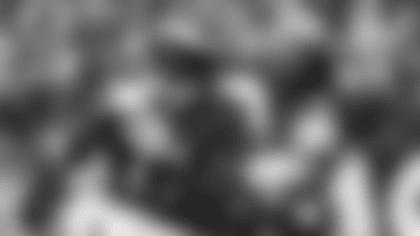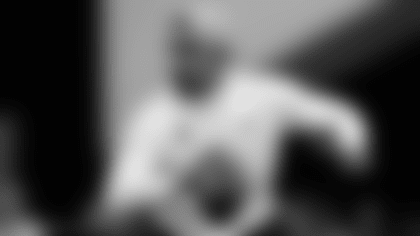It was a July 4, Vince Papale recalled, and Eagles head coach Dick Vermeil wanted to know why folks wanted to interrupt his team's practice with the foolishness of fireworks.
"Training Camp for us started on July 3," said Papale, Mr. Invincible, of course, who played with the Eagles from 1976-78. "Dick wanted to know where all the noise was coming from and he couldn't understand how anyone would try to disrupt our practice. That's how focused he was on Training Camp and the Philadelphia Eagles."
Times have changed in a big way for the NFL and the approach to Training Camp. The Eagles open camp this weekend at the NovaCare Complex and just about everything is different from the time when Papale played. Back then, in the mid 1970s and 80s, the roster size for camp was set at 120 players. The practices, which sometimes carried through for more than three hours, were full contact. Camp lasted for as long as seven weeks in some instances.
"It's a new world," said Papale.
Papale and former Eagles linebacker Ike Reese joined current Eagles safety Chris Maragos at the ongoing Eagles Insider Series event on Monday night at the NovaCare Complex. It's a program that began last season and continues monthly through the remainder of the 2014 campaign, featuring new topics and former and current players in an interactive format in front of invited Season Ticket Members and their guests who are also treated to a tour of the NovaCare Complex and some festivities before the main event. The topic on Monday night was on the Evolution of Training Camp, and the three players reflected on the changing times of what is an extremely challenging time of the year for every aspiring NFL player.
"I can't say that I ever enjoyed Training Camp," said Reese, an Eagle from 1998-2004. "It's a necessary part of the game. You need to prepare yourself mentally and physically for a long season. And for me, Training Camp gave me the opportunity to prove myself and to win a job every year. My mentality was always that I had to go out and earn a roster spot. So I was willing to do anything the coaches asked me to do to make a positive impression.
"I embraced the chance to make plays in practice and then in the preseason games. As a backup player, you get your most snaps in the preseason games, so I looked forward to them."
Both Papale and Reese joked that today's camp lifestyle, so dramatically different than when they played, is sometimes greeted by former players with some raised eyebrows. Today's NFL players have much less contact in camp, and are restricted to one practice per day in pads. The second practice must be a walk-through. Players are given a day off after seven days of practice.
It isn't just the contact and the reduction in tackling and the sheer physical nature of practice that has changed. When Papale was an Eagle, players weren't encouraged to hydrate. The attention to physical performance and the rise of sports science has revolutionized the sport. Rest and recovery as just as important as a good lift.
The idea is to test the players and to find the best 53 for the roster, but to also reduce as much as possible the long-term wear and tear on players' bodies and minds.
"One of the differences for us, though, is that we kind of have that 'Training-Camp' feel in our spring sessions," said Maragos, who admitted that he was taken aback a bit at the tempo of Chip Kelly's first training session in the spring. "We get through a lot of the playbook and have a good feeling for what camp is going to be like when we have our OTAs (Organized Team Activities) in the spring.
"I'm really looking forward to starting camp. I love being here, love being part of this city and this team. We have a group of players who are excited to get to work."
Reese played first for Ray Rhodes in 1998 and then for Andy Reid. The difference in the approach to Training Camp was striking. Reese said that Rhodes' camp was more of a "country club" feel, not a good thing for a team that eventually went 3-13 in '98. Reid's camps were more physical and the players could get worn down, and Reid's early Eagles teams tended to start slowly and roar down the stretch.
"I feel if I played now, my career would be extended a few years with the way practice is run," said Reese. "There is much more care and concern for the player, and I think that's a good thing. Does it make the NFL a better product? That remains to be seen. This is still kind of a new approach. Is tackling adversely affected by limiting taking a player to the ground in Training Camp? It didn't hurt the Eagles last season, so Chip and his coaching staff are doing a great job teaching the fundamentals. I'm not sure that's the way it is around the NFL, though."
It makes for good conversation, which is what the Eagles Insider Series is all about. Training Camp nears and the fans packed the NovaCare Complex and the energy level was high. Maragos, new to Philly and the Eagles, feels the vibe.
"It's great here. The fans are so into it and they're hungry to get things going," he said. "I've been working hard and I'm ready for camp. We may not tackle as much as in the past, but it's still extremely challenging. Very fast pace. We have to pay attention to detail. You can't skip anything and expect to make it."
July 4 has come and gone, so the days of fireworks interrupting practice are over. The Eagles are going to hit the ground running, and running and running some more. The game has changed over the years, but the goal for camp is the same: Win every day, earn a roster spot and win the Super Bowl.
"That much is always going to be the case," said Papale. "This is a business. No matter how different practices are, you are reminded of that every day in the NFL.























